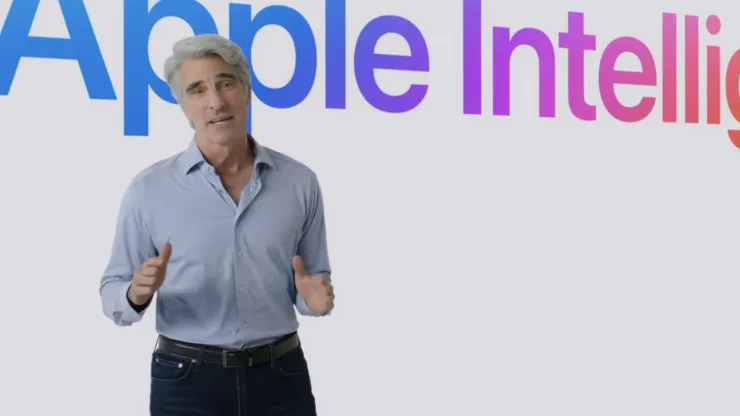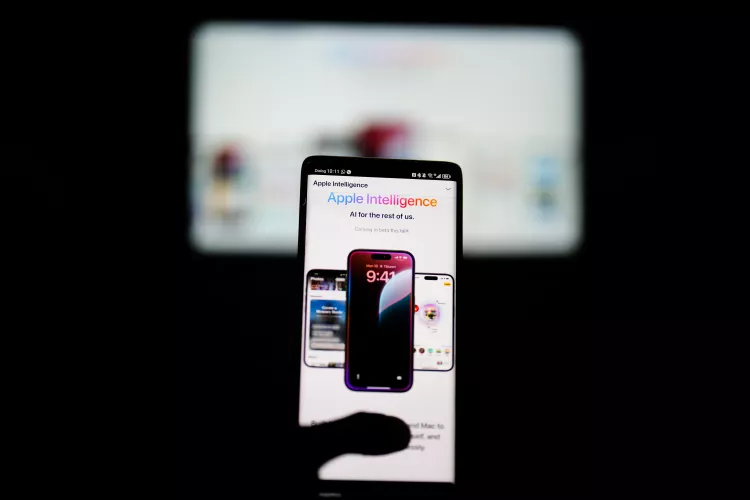Apple’s entry into the artificial intelligence arena, the tech giant has released the first version of Apple Intelligence to developers. This suite of AI features, which promises to revolutionize the iPhone experience, is currently available only to registered software developers as part of the beta version of iOS 18.1.
The release, which came on Monday, offers a glimpse into Apple’s vision for AI integration across its ecosystem. While not all features showcased at June’s Worldwide Developers Conference (WWDC) are included in this initial rollout, it represents a crucial first step in Apple’s AI strategy.
Key Features of Apple Intelligence
The developer preview includes several notable improvements:
- Enhanced Siri: The voice assistant has received a visual upgrade, with the edges of the phone now glowing during use. Siri can now better understand commands even when users stumble over their words and can answer troubleshooting questions about Apple products.
- Improved Photo Capabilities: The AI enhances photo search functionality and movie creation tools.
- AI-Generated Summaries: The system can now produce summaries for emails, messages, and voicemail transcriptions.
- Writing Tools: Apple’s text-generation service is included in this preview.

However, some anticipated features are not yet available in this release. These include image and emoji generation, automated photo clean-up, and certain advanced Siri functionalities like the ability to use personal information and take actions within apps. Apple has stated that these features will be rolled out over the next year.
Notably absent from the current preview is the integration with OpenAI’s ChatGPT, which was announced during WWDC.
Timeline and Availability
The release of Apple Intelligence as part of iOS 18.1 suggests that it will not be available with the initial launch of iOS 18 and the expected iPhone 16 in September. Instead, reports indicate that Apple plans to launch these AI features with iOS 18.1 in October.
Currently, access to Apple Intelligence is limited to registered developers who pay $99 per year for the Apple Developer Program. Even among this group, users must join a waitlist within the settings app to gain access to the service, which requires communication with Apple’s servers for more complex requests.
This staged rollout allows Apple to thoroughly test and refine its AI features before a wider public release. It also gives developers time to integrate these new capabilities into their apps and identify potential issues.
Market Impact and Investor Expectations
The introduction of Apple Intelligence has sparked interest among investors and market analysts. There’s hope that the tight integration of AI with Apple’s operating system could drive a significant wave of device upgrades in the coming years.

Bank of America analyst Wamsi Mohan noted, “We expect this iPhone cycle to remain strong for longer as AI feature sets (software and possibly hardware) improve in the 2025 iPhone.”
It’s worth noting that Apple Intelligence will only work on the iPhone 15 Pro and iPhone 15 Pro Max and newer models, which could further incentivize upgrades.
Apple’s stock saw a modest increase following the news, rising 0.3% to $218.57 as of 3:30 p.m. ET on Monday. The company’s shares have climbed over 13% since the start of the year, with most gains coming after the announcement of Apple Intelligence at WWDC.
Challenges and Competition
While this release marks an important step for Apple, the company faces stiff competition in the AI space. Rivals like Google and Microsoft have already made significant strides in integrating AI into their products and services.
Apple’s approach, focusing on on-device processing and privacy, differentiates it from competitors. However, this strategy also presents challenges, particularly in terms of processing power and the ability to handle complex AI tasks without relying heavily on cloud computing.
The Future of Apple AI
As Apple continues to develop and refine its AI capabilities, users can expect more features to be added over time. The company has indicated that some of the more advanced functionalities, such as a Siri that can perform actions within apps and gain onscreen awareness, may not be available until the spring of 2025.
The gradual rollout of these features allows Apple to maintain its reputation for polished, reliable products while still pushing the boundaries of what’s possible with on-device AI.
Conclusion
Apple’s release of the first version of Apple Intelligence marks a significant milestone in the company’s AI journey. While still in its early stages and limited to developers, this move signals Apple’s commitment to integrating AI deeply into its ecosystem.
As the technology evolves and more features become available, it has the potential to reshape how users interact with their Apple devices. The coming months will be crucial as developers begin to work with these new tools and Apple refines its AI offerings based on real-world feedback.

With its trademark focus on user experience and privacy, Apple’s entry into the AI space could set new standards for how artificial intelligence is implemented in consumer technology. As the company prepares for a wider release later this year, all eyes will be on how Apple’s AI strategy unfolds and how it will impact the broader tech landscape.
Copyright©dhaka.ai
tags: Artificial Intelligence, Ai, Dhaka Ai, Ai In Bangladesh, Ai In Dhaka, Future of AI, Artificial Intelligence in Bangladesh, Apple



